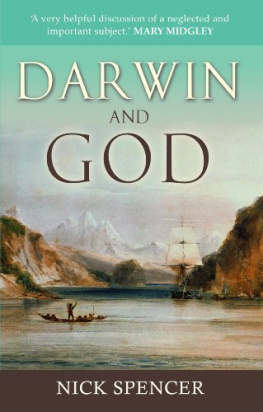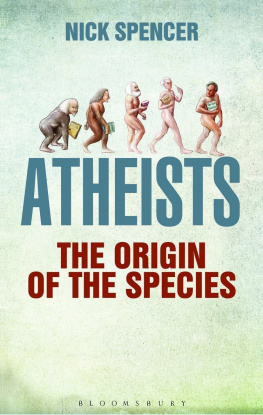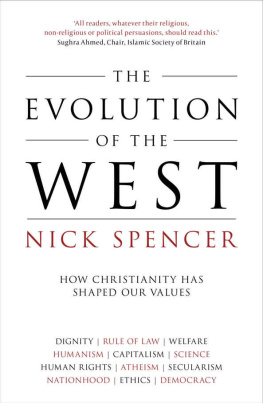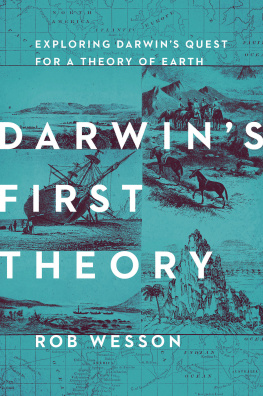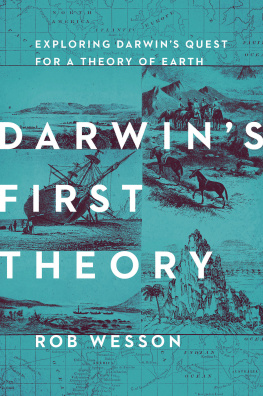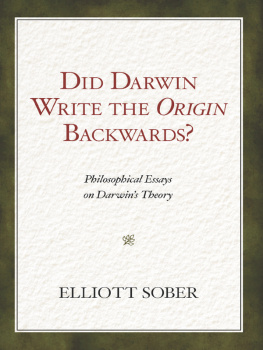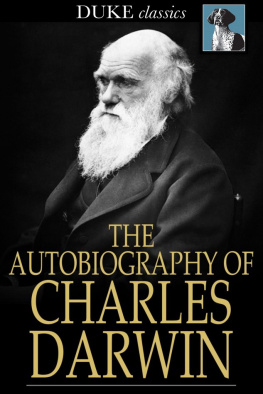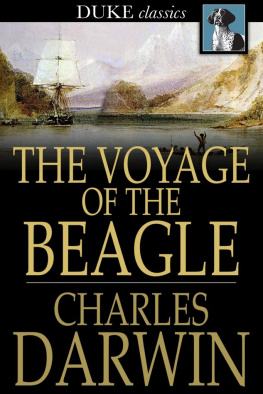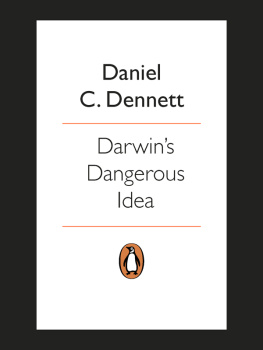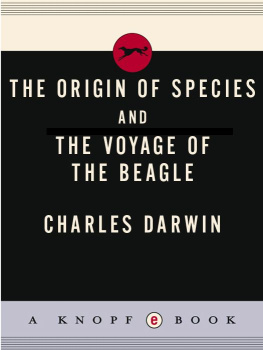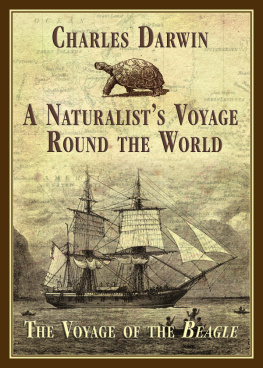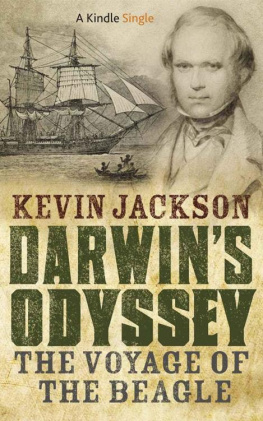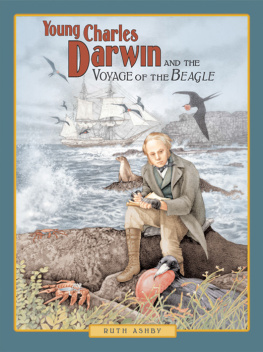Nick Spencer is Director of Studies at Theos, the public theology think tank. He is the author of a number of books and reports, most recently Neither Private nor Privileged: The Role of Christianity in Britain Today (Theos, 2007).
DARWIN AND GOD

Nick Spencer
First published in Great Britain in 2009
Society for Promoting Christian Knowledge
36 Causton Street
London SW1P 4ST
Copyright Nick Spencer 2009
All rights reserved. No part of this book may be reproduced or transmitted in any form or by any means, electronic or mechanical, including photocopying, recording, or by any information storage and retrieval system, without permission in writing from the publisher.
SPCK does not necessarily endorse the individual views contained in its publications.
British Library Cataloguing-in-Publication Data
A catalogue record for this book is available from the British Library
ISBN 9780281060825
1 3 5 7 9 10 8 6 4 2
Typeset by Graphicraft Limited, Hong Kong
Printed in Great Britain by Ashford Colour Press
Produced on paper from sustainable forests
Contents


I am hugely grateful to a number of people who have helped improve this book. My colleagues Paul Woolley and Paul Bickley read the original manuscript carefully and offered valuable comments. Jennie Pollock not only gave similarly helpful comments but also did a superb job of weeding out the innumerable small errors that had crept into the text.
Denis Alexander, Ian Christie and John Hedley Brooke each took time to read and comment on the first draft, for which I am particularly grateful, given their busy schedules.
Darwin and God is part of a larger project undertaken by Theos, the public theology think tank, and the Faraday Institute for Science and Religion, which was made possible by a generous grant from The Templeton Foundation, for which I am deeply thankful.
I owe a debt of gratitude also to SPCK, who caught the idea for a book on Darwins religious beliefs straight away, and to Alison Barr, who offered her usual perceptive comments in the editing process.
My greatest debt of thanks is, of course, to Kate, my wife, and to Ellen and Jonny, my children.
Last, but certainly not least, Toby Hole took the time to read Darwin and God , as he has every book I have written. His comments were as incisive and encouraging as his example of Christian faith and intellectual rigour has been inspiring to me. It is with great pleasure that I dedicate this book to him.
Nick Spencer
London, Autumn 2008

1809 | Born on 12 February in Shrewsbury, son of Robert Waring and Susannah Darwin, ne Wedgwood |
1817 | Starts at school run by Unitarian minister, George Case; mother dies |
181825 | Attends Shrewsbury School as a boarder |
18257 | Studies medicine at Edinburgh University, initially with his brother, Erasmus |
1827 | Leaves Edinburgh; father encourages him to ordination in the Church of England; admitted to Christs College, Cambridge, but does not take up residence until January 1828 |
182831 | Studies (and collects insects) at Cambridge; passes BA in January 1831; remains for a further two terms to fulfil residence requirement |
1831 | Name put forward as a potential companion for Captain FitzRoy on Beagle voyage to survey South American coast |
18316 | Travels on Beagle |
18367 | Returns to Shrewsbury, then Cambridge and London; starts publishing scientific papers |
18379 | Begins speculating on species evolution in private notebooks that form the basis of his theory; discusses his religious scepticism with future wife, Emma |
1839 | Marries Emma on 29 January; first child, William, born; publishes Voyage of the Beagle |
1841 | Daughter Anne (Annie) born |
1842 | Moves to Down House, Downe, Kent; makes initial sketch of his species theory |
1844 | Writes second, longer species sketch |
184654 | Works on barnacles; sporadic illnesses intensify |
1848 | Father dies |
1849 | Tries water treatment for his illness in Malvern |
1851 | Takes Annie to Malvern for water treatment. She falls ill and dies on 23 April, aged ten |
1854 | Completes barnacles work and returns to work on species theory |
18567 | Begins writing up theory into a projected big book called Natural Selection |
1858 | Receives a letter from Alfred Russel Wallace that contains an identical theory of evolution; persuaded to co-present Wallaces paper and one of his own at Linnean Society on 1 July (although he is absent from meeting); begins abstract of his long species book, which becomes The Origin of Species |
1859 | The Origin of Species published on 24 November; second edition follows in months |
18602 | Works on orchids |
18636 | Serious and prolonged bouts of ill-health |
1868 | Publishes The Variation of Animals and Plants Under Domestication |
1871 | Publishes The Descent of Man |
1872 | Publishes The Expression of the Emotions in Man and Animals |
1876 | Begins to write an autobiographical memoir |
1882 | Dies 19 April, aged 73; buried a week later in Westminster Abbey |

Charles Darwin died an agnostic. He disliked theological speculation. He believed one could be both an ardent theist & an evolutionist.
Somehow, in spite of this, recent years have seen Darwin adopted as the icon of thinking atheism. His theory of evolution by natural selection supposedly makes disbelief in God intellectually fulfilling and sends all other explanations of life, purpose and meaning to the philosophical dustbin. In the words of one such Darwinian, When you are actually challenged to think of pre-Darwinian answers to the questions What is man? Is there a meaning to life? What are we for? can you think of any that are not now worthless?
Religious believers who turn to Darwin for succour are unlikely to find him any more comforting, however. Darwin had a Christian faith and he lost it. In spite of rumours to the contrary, he did not convert to Christianity or renounce evolution on his deathbed. He did not believe in the divinity of Jesus Christ or in the possibility of revelation. He may have been buried in the nave of Westminster Abbey, yards away from the missionary David Livingstone, but he shared precious little of Livingstones orthodox Christian faith.
It is precisely this that makes him such an interesting figure. In spite of efforts to prove otherwise, Darwin is too subtle, too thoughtful, too interesting a figure to manipulate. As the academic John Hedley Brooke has commented, we need to be very careful about trying to pigeon-hole the man who wouldnt pigeon-hole pigeons.
Next page
